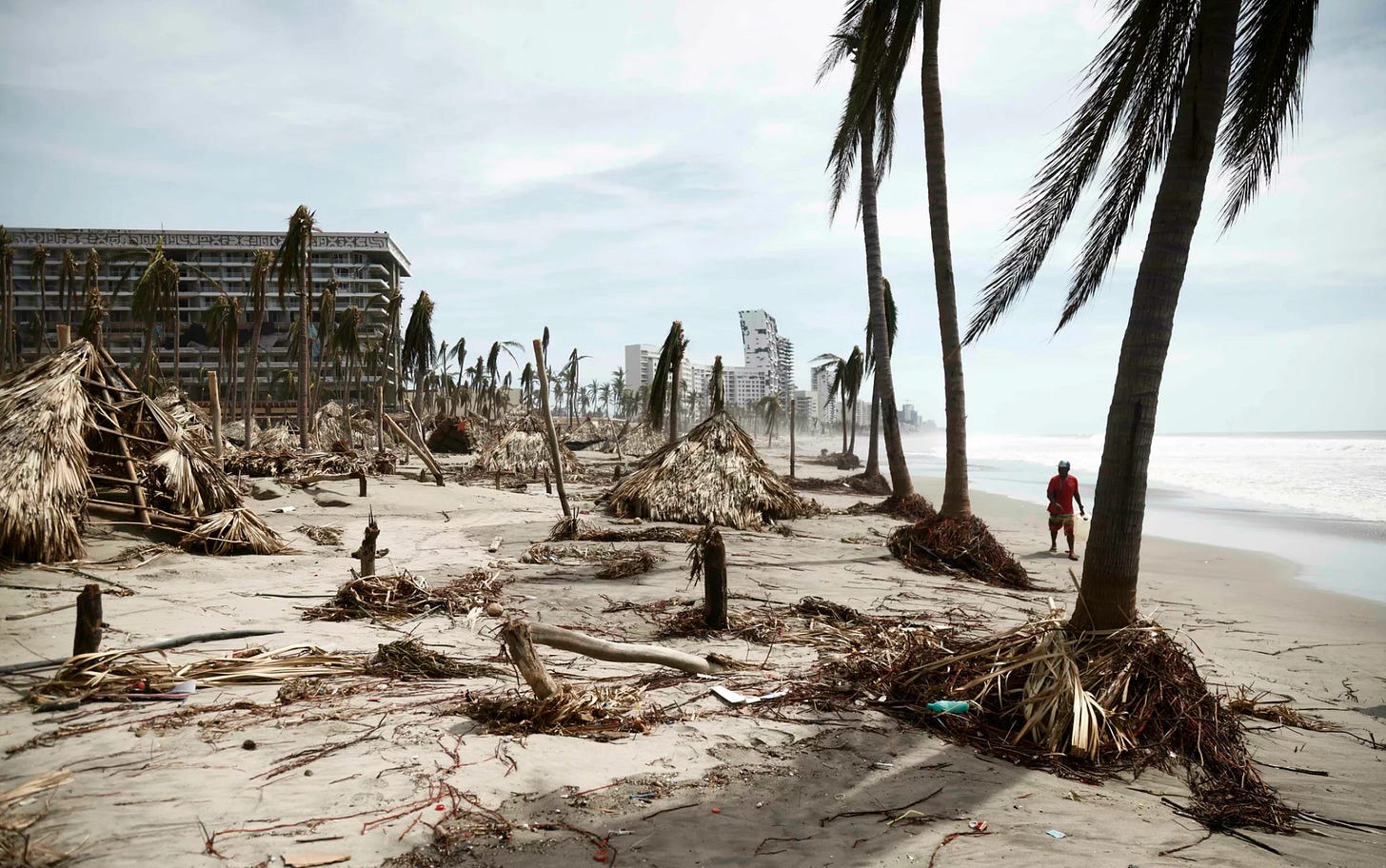Hurricane Otis in Mexico As Consequence of Climate Crisis
Short on time? Get a quick rundown of today’s top stories from the ACR:
Hurricane Otis rapidly intensified into a Category 5 hurricane before hitting Acapulco, Mexico, causing casualties and widespread damage, highlighting the increasing frequency of rapid intensification due to climate change.
Protesters in Panama are demanding the cancellation of a contract for a copper mine expansion due to concerns about its environmental impact, despite the economic benefits it brings to the country.
Hurricane Otis in Mexico As Consequence of Climate Crisis
Last week, the region of Acapulco, in Mexico, was hit by Hurricane Otis, a tropical storm that rapidly intensified as a Category 5 hurricane, leaving 45 people dead and 47 missing. Survivors are facing challenges with clean water and damaged homes, while efforts are underway to restore basic services and provide support to affected residents. Hurricane Otis rapidly intensified before making landfall in southern Mexico, catching coastal communities off guard. The storm's windspeed increased by 115 mph in 24 hours, with only one other storm in East Pacific records exceeding this rapid intensification. The phenomenon is fueled by significant ocean heat, which has been increasing due to global warming. Rapid intensification is becoming more common due to human-caused climate change, and it is observed in both the Atlantic and Pacific oceans.
Protesters Demand Cancellation of Copper Mine Contract in Panama
Protesters in Panama are calling for the government to cancel a contract for the expansion of a copper mine in a biodiverse region. The government highlights the economic benefits of the mine, which contributes 3% of the nation's GDP and provides employment for thousands of Panamanians. Despite the new contract guaranteeing Panama a minimum of USD 375 million annually, protesters are determined to persist in their opposition. Environmentalists and labor unions argue that the ongoing development poses a threat to forested areas and vital groundwater. The protests, led by environmentalists, teachers, indigenous people, and construction workers, have been driven by concerns about the mine's environmental impact. In response, the Panamanian government has offered a referendum to allow the people to decide whether to cancel the deal.
Redwood Materials, a Nevada-based company, recycles, refines, and remanufactures battery materials for a clean energy future. They are working to establish a domestic battery supply chain by recycling batteries and using the materials to produce anode and cathode (the crucial components of cells and batteries) in the United States. In doing this, Redwood is creating a closed-loop domestic supply chain for lithium-ion batteries, including collection, refurbishment, recycling, refining, and remanufacturing of sustainable battery materials.
Redwood plans to produce enough anode and cathode for 1 million electric vehicles by 2025 and 5 million by 2030.
Video rights: Redwood Materials
Lucrative Reward or Mounting Risk? Mexico’s Growing Reliance on U.S. Gas
Publisher: Center on Global Energy Policy at Columbia University
Author: Ira Joseph & Diego Rivera Rivota
Publication Date: October 24, 2023
Access the report here.
This report examines Mexico's growing dependence on U.S. gas and the associated potential risks. Despite slower demand growth in recent years, Mexico's reliance on U.S. gas has continued to rise. The report highlights the challenges Mexico faces in addressing its supply gap and the limitations of its pipeline infrastructure. It also discusses the vulnerability of Mexico's energy security in the event of disruptions in U.S. gas supply, as demonstrated by the Winter Storm Uri incident in Texas. In conclusion, the report suggests the need for long-term planning and diversification of Mexico's energy sources to mitigate risks and ensure a sustainable and secure energy future.







